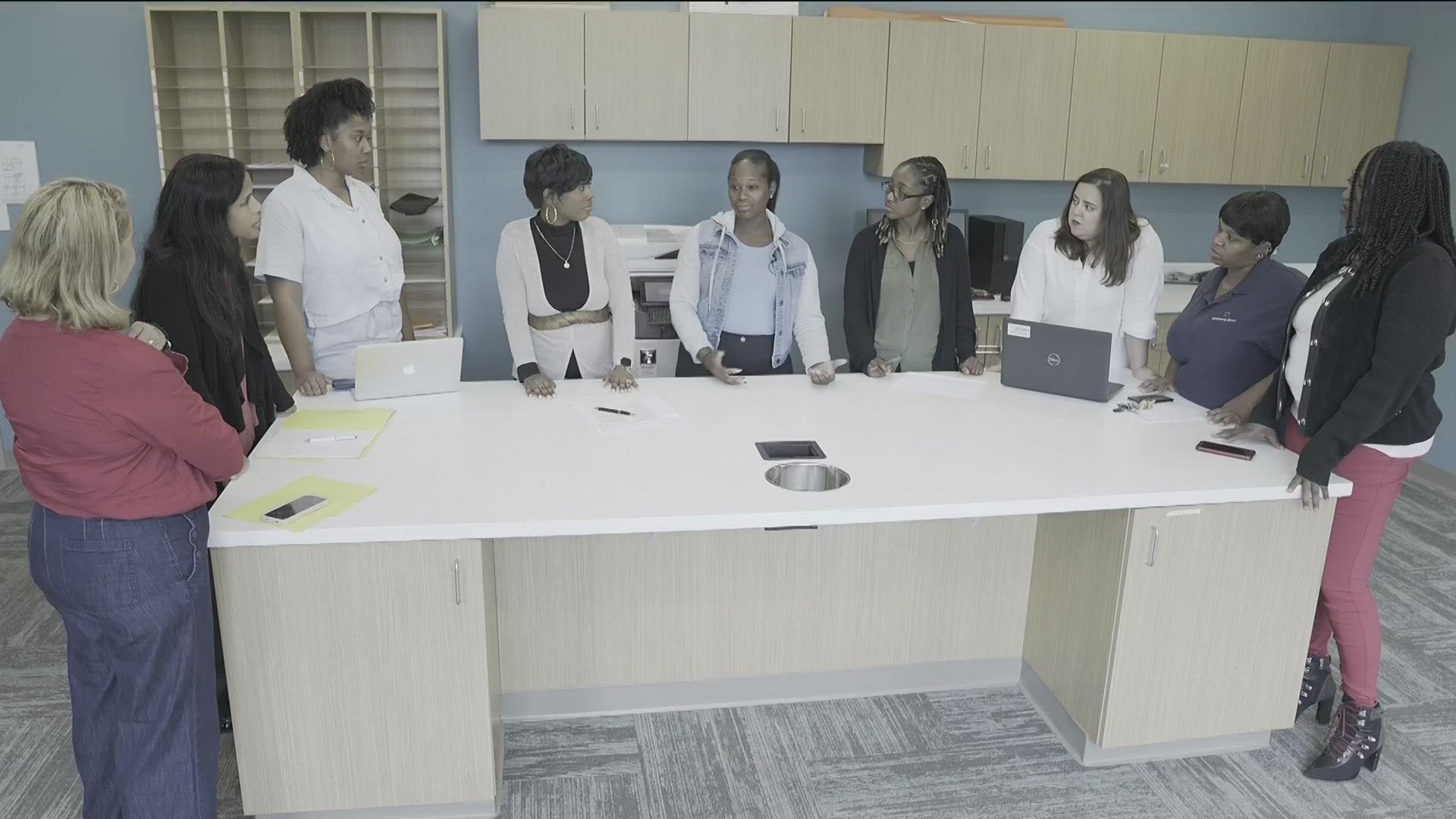ATLANTA — This week marks Black Maternal Health Week, and while awareness often focuses on the physical, experts emphasize a mother's mental health is also priority.
"What we do see is there are some studies that document how mental health conditions like depression, and particularly trauma and stress-related disorders can impact different mental and physical health outcomes," Dr. Briana Woods-Jaeger told 11Alive.
A recent study led by Dr. Woods-Jaeger and Dr. Abigail Powers Lott surveyed more than 600 Black pregnant women who were receiving services at Atlanta’s Grady Hospital.
“98% had trauma exposure, a very high rate of trauma exposure over their life course and only 6% had actually accessed PTSD (post-traumatic stress disorder) treatment,” said Dr. Woods-Jaeger. “That really clued us into that there is in an unmet mental health need here and what can we be doing, in metro Atlanta particularly, to address it.”
Thanks to support from UnitedHealthcare, the THRIVE research team is working to counter those numbers through the Moms to Be THRIVE project (Together promoting Health and Resilience through Interventions, Voice & Equity). The project includes focus groups with Black pregnant women or those who have given birth in the last year to better understand mental health, stress, barriers around treatment and needed support. Sheltering Arms is also a partner.
"We learned a lot," Dr. Woods-Jaeger explained. "We definitely heard several different things that we can do to adapt our actual treatments, but also that we need to be working more in the community to build trust, to create these spaces where Black pregnant women can provide each other with social support directly and also really think about how to engage them as partners and navigating the medical system, which can be very stressful in of itself."
The project not only focuses on listening, mindfulness and community resources but also employs moms who've participated in the program to support other moms.
"I hope to share with other Black pregnant women or just mothers in general that have little babies that they aren't alone, and we are all in this together,' Alesha Bell, mother of two, shared.
The support, Bell explained, was particularly helpful after the birth of her second child.
"Sometimes, you know, people need to know that there's somebody that identifies with what they're going through," she said.
The idea of mothers helping other mothers, supervised by a trained clinician, is a model that works, Dr. Woods-Jaeger explained, particularly when it comes to addressing barriers and mistrust of the medical community.
"These are incredible mothers with so much wisdom and lived experience and being able to partner with them to deliver an intervention is really exciting," she added.
Learn more about the project here.

